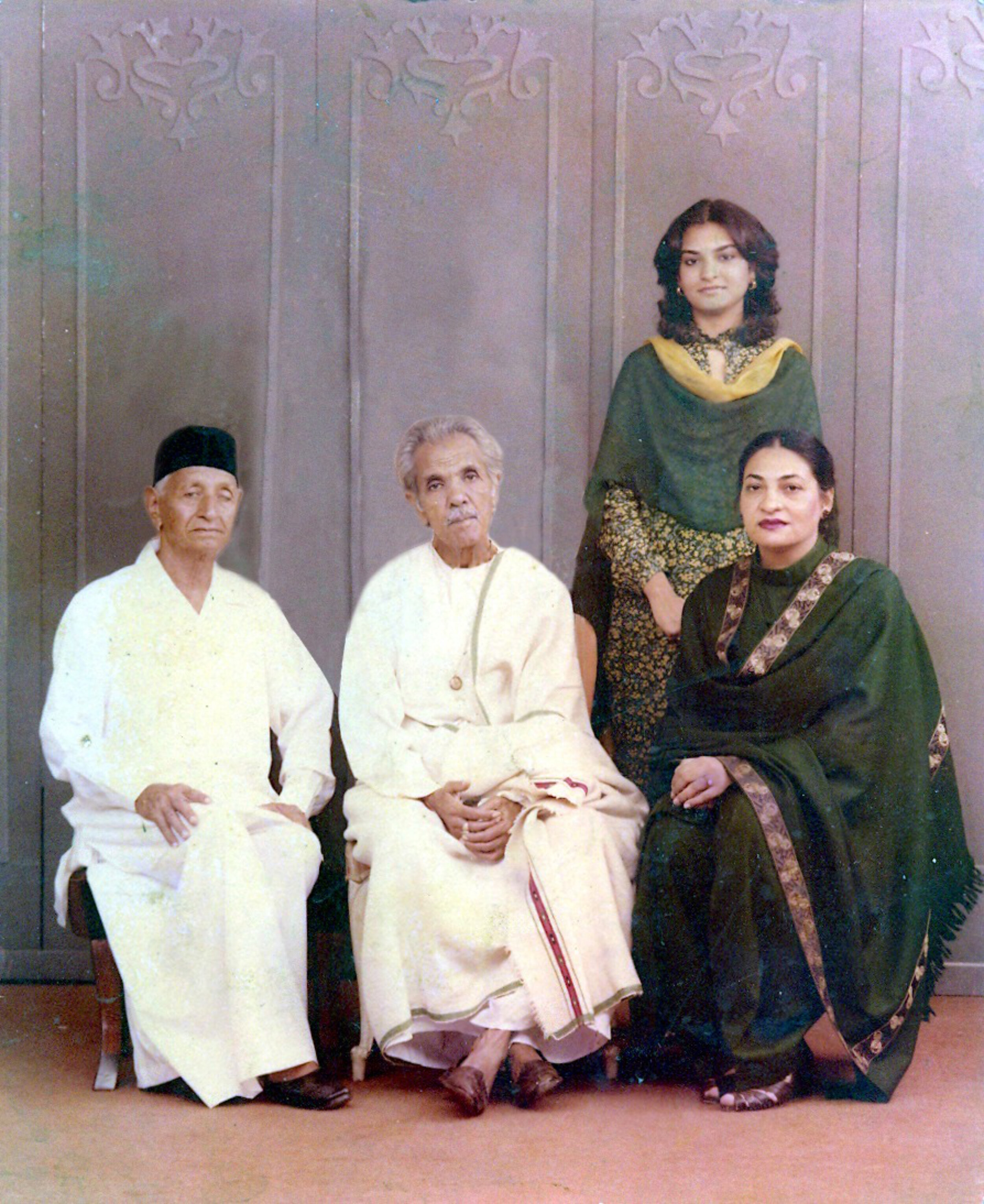Lessons: Samina Hasan Syed with Ustad Chhotay Ghulam Ali Khan
Samina Hasan Syed, 1986.
Samina Hasan Syed, (29th December 1944 - 16th September 2016) sixth of nine siblings, was born in Ferozepur to Qamar Sultana and Syed Ahmed Hasan. Her father Syed Ahmed Hasan, was a senior government servant. When Samina was about twelve years old, her paternal aunt Saeeda Bano, heard her sing. Impressed and excited she asked Samina's parents to arrange singing lessons for the gifted child. Even though it was a conservative Syed family, Samina’s parents asked Master Fateh Ali to give vocal training to her. Naturally gifted with a beautiful voice, Samina was trained by Master Fateh for basic note application. After a couple of years, Samina was introduced to Bhai Chhaila. Bhai Chhaila (1895-1983) hailed from the Tarn Taran lineage of rababis and was associated with the court of Maharajah of Patiala. He was a very well known singer of his time. Bhai Chhaila trained Samina for a few years. She also learnt from Feroze Nizami Sahib briefly before spending extended years under the tutelage of Ustad Chhotay Ghulam Ali Khan of Qawwal Bacha Gharana, till his death in 1986.
From the age of 12, Samina had started performing in school and later in college and the All Pakistan Music Conference. After completing her MSc in Home Economics, she was asked to introduce music as a subject at her Alma mater, College of Home Economics, Lahore (now the University of Home Economics). She taught the theory of music for over three decades. Samina hosted the weekly Sangat and lead the music at her residence, 49 Jail Road, Lahore, from the early 1970s until her death in 2016. This is the music her husband, Najm Hosain Syed who is a playwright, poet and critic, composed. All his compositions of Punjabi poets from Baba Farid (1179–1266) to Khawaja Ghulam Farid (1845–1901) sung by her are available here on Soundcloud. She dedicated her entire life to music.
Samina Hasan Syed (standing third from right in the front row) with her parents, Aunt Seeda Bano, siblings, and cousins, 1955.
Samina Hasan Syed, early 1960s.
Samina Hasan Syed with her sister Rahat Hasnat, 1960s.
Samina Hasan Syed, early 1980s.
Sitting left to right: Ustad Mohammad Tufail Khan Naroval, Ustad Chhotay Ghulam Ali Khan, Samina Hasan Syed, Standing: Risham Syed. At Rollo Studios, 1983.
An Archival Project
As soon as Samina started learning from Khan Sahib, she knew that he was a treasure and that his knowledge needed to be preserved for future generations. She started documenting all her lessons on cassettes. She also made extensive written notes in her diaries during this time (from the 70’s up to the mid 80’s before his death). While I was growing up, I would often hear her speak about these cassettes and how one day they had to be organized according to Raags and Raags according to Thaats, (which is a scientific way of organizing Raags) and turned into an archive for music practitioners, researchers and scholars. This was much before the digital age so she did not have a website in mind but she knew that this had to be, somehow, brought into the public domain. She worked like an archivist herself, asking all the right questions about the history of these bandishes, what made two similar-sounding Raags different or how a particular composition was rendered for a particular occasion. In places where she felt something needed to be redone, she asked Khan Sahib to repeat. These cassette recordings have now been digitized and put into a website. The process began with listening to these recordings and extracting lessons from various lengths of cassettes and then organizing them into their respective Thaat folders. Khan Sahib was a great raconteur. These recordings also had little anecdotal stories that Khan Sahib related. These conversations have been placed under a separate tab. Some formal and other informal performance recordings were also part of these cassettes and have been shared on the website.
I would like to add, that the data organized here has been done so to the best of my knowledge, after getting some expert opinion and consulting online platforms. Discrepancies are bound to be there and I invite audiences to share their knowledge and help improve this resource for generations to come.
I am thankful to Mrs Sarah Zaman and Ustad Pervaiz Paras for their support. They both learnt music under the tutelage of Ustad Chhotay Ghulam Ali Khan.
Risham Syed,
Lahore, March 2021





